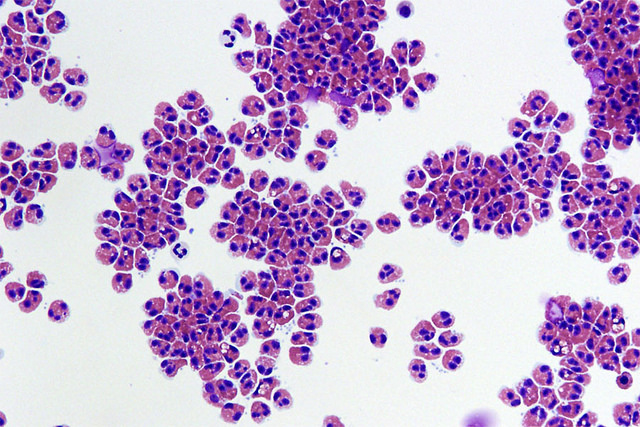Differential white cell count (or differential count) is a sub-classification of white blood cells giving the absolute numbers and relative proportions of each type of white blood cell, including neutrophils, lymphocytes, monocytes, eosinophils and basophils. This helps to characterise the most likely causes of a raised or low white cell count.
How is a differential count performed?
Differential white cell count is a blood test performed as a routine part of the Full Blood Count (FBC). It is a blood test.
When would you need a differential count?
The differential white cell count is part of the routine information provided by a full blood count (FBC), which includes as one of its components the white cell count (WCC). Your doctor may pay particular attention to the ‘diff count’ when there is a suspicion of infection, or when the WCC is particularly high or low – to find out which particular types of white cell are increased or decreased.
Differential count results explained
The differential white cell count is most useful in the setting of a high or low total WCC.
When the WCC is high, the particular proportions of white-cell subtypes may be suggestive of:
- Infection – raised neutrophils
- Specific infections – raised lymphocytes may be found in Infectious Mononucleosis, other viral infections, tuberculosis, some fungal infections, or longstanding bacterial infections
- Allergy – raised eosinophil count
The appearance of the cells under a microscope may also give clues, for example:
- ‘Leftward shift’ in neutrophils (appearance of less mature forms) suggests infection, particularly bacterial
- ‘Atypical lymphocytes’ suggests infectious mononucleosis (glandular fever)
- ‘Blasts’are very immature forms of white cells which suggests (but does not confirm) one of several types of leukaemia
In the setting of a LOW or normal total WCC:
- Low lymphocyte count suggests viral infection
- Low neutrophil count (neutropaenia) may be due to an acute infection, or may be in the setting of recent chemotherapy, a potentially dangerous situation where the risk of serious infection is increased.
Get on top of your general health
Find and instantly book affordable GPs within Australia
Related specialists
- General Practitioner (GP)
- Haematologist
- Oncologist
- General Physician
- General Surgeon
- Orthopaedic Surgeon
- Emergency Physician
- Respiratory Physician
- Infectious Disease Physician
- Intensivist
- Paediatrician
Related procedures
- Blood Test (venesection)
- Bone Marrow Biopsy
Related tests
Also known as
- Differential WBC / WCC
- Differential count
- Diff count
A: Use HealthEngine to find and book your next Haematologist appointment. Click on the following locations to find a Haematologist clinic in your state or territory.
This article is for informational purposes only and should not be taken as medical advice. If in doubt, HealthEngine recommends consulting with a registered health practitioner.
All content and media on the HealthEngine Blog is created and published online for informational purposes only. It is not intended to be a substitute for professional medical advice and should not be relied on as health or personal advice. Always seek the guidance of your doctor or other qualified health professional with any questions you may have regarding your health or a medical condition. Never disregard the advice of a medical professional, or delay in seeking it because of something you have read on this Website. If you think you may have a medical emergency, call your doctor, go to the nearest hospital emergency department, or call the emergency services immediately.








